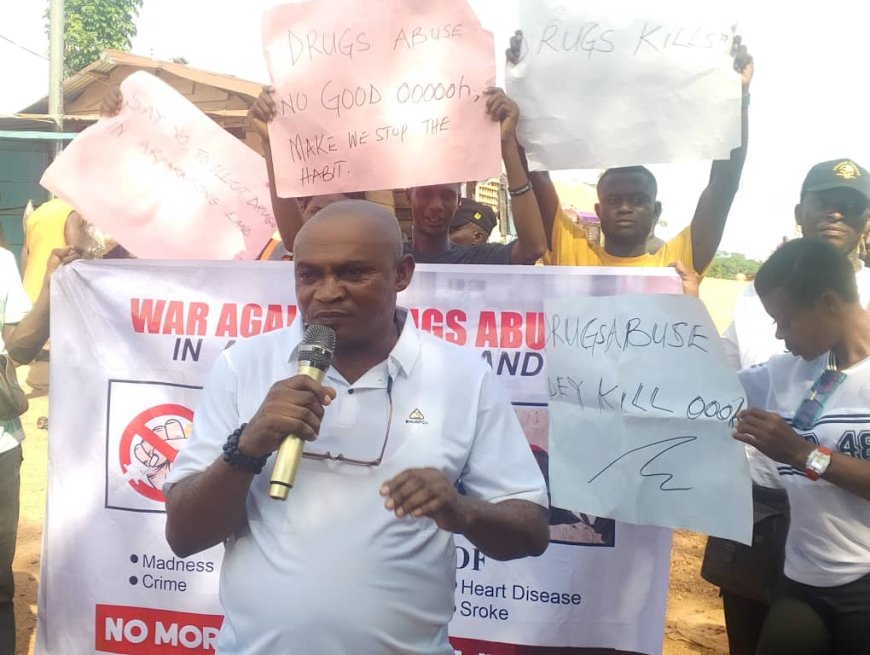Akparabong Community Declares War On Drug Abuse, Says No More Grave For Our Youths

By Ebi COLLINS
Akparabong has had enough. The days of silence, of helpless whispers and secret funerals, are over. On Friday, April 18, 2025, the people of Akparabong Ward roared to life in a thunderous declaration: drug abuse ends now—or else.
Led by Hon. Egiga Agim Obaji, the councillor representing Akparabong Ward, and backed by the National Youth Council of Nigeria (NYCN), the entire community rose in unified rage against the hard drugs decimating their sons, daughters, and future. The anti-drug campaign swept through all eight villages of Akparabong like wildfire—delivering a simple but uncompromising message: “Drugs Must Die Before Our Children Do.”
No village was spared. No corner left untouched. In every gathering, the mood was the same—fury, pain, and an unflinching resolve to reclaim Akparabong from the grips of addiction, madness, and death. From mothers who have buried their sons to fathers who have watched their daughters vanish into the streets, the community spoke with one voice: “We are done watching. We are done crying. We are fighting back.”
Councilor Egiga minced no words. “We are not begging drug dealers to stop—we are coming for them. We are not pleading with addicts to reconsider—we are dragging them back to sanity. This land will no longer be fertile for crime, for broken dreams, or for slow suicide. Akparabong will not become a rehab cemetery.”
With the NYCN in full force, the campaign was flanked by a powerful cast of leaders and stakeholders. Present were Hon. Amba Oben, the newly elected NUT Chairman for Ikom; Madam Peace Manyo, SA on Women Affairs for Ikom LGA; Mrs. Beatrice Obim, APC Ward Chair; Comrade George Eba, Central Youth Leader; Comrade Owan Perry, the Akparabong Marathon Coordinator and CPS to the Paramount Ruler of Ikom; alongside the entire NYCN Ward Excos, Town Council Chairmen, community police, women leaders, youth executives and enraged villagers.
They didn’t come to observe. They came to fight. And their message was ruthless: drug abuse is not a youth problem—it’s a community threat. And if you’re enabling it, you’re the enemy.
Across the villages, cries of “No More Brain Damage! No More Madness! No More Death!” echoed in the streets. The rally hit every nerve, dredging up stories of wasted talent, dead dreams, and blood-soaked regrets. But it also sparked hope. For the first time in a long time, Akparabong stood tall—not in mourning, but in defiance.
The message has been sent. The lines have been drawn. And the people are watching. Drug peddlers, look over your shoulders. Addicts, seek help or face consequences. This is not a warning. It is a promise.
Akparabong has gone to war. And this time, drugs lose.












































